Portugal’s culture is a rich and diverse blend of influences from history, geography, and people that is constantly evolving and adapting to modern times while still honoring its traditions and heritage.
In fact, many of Portugal’s festivals and traditions are unique to the country, and many of them are celebrated only in certain regions. This promises a unique and unforgettable travel experience when you witness or even participate in these events. I’ll share the eight cultural experiences and local festivals that you should definitely consider on your next trip.
This is the final post of a 4-part series of our Portugal travel guide.
- Part One: Most Popular Travel Destinations in Portugal
- Part Two: Portugal’s Burgeoning Culinary Scene
- Part Three: Celebrating Portugal’s Wonderful Art and Architecture
- Part Four: (this blog)
1. Fado Performances
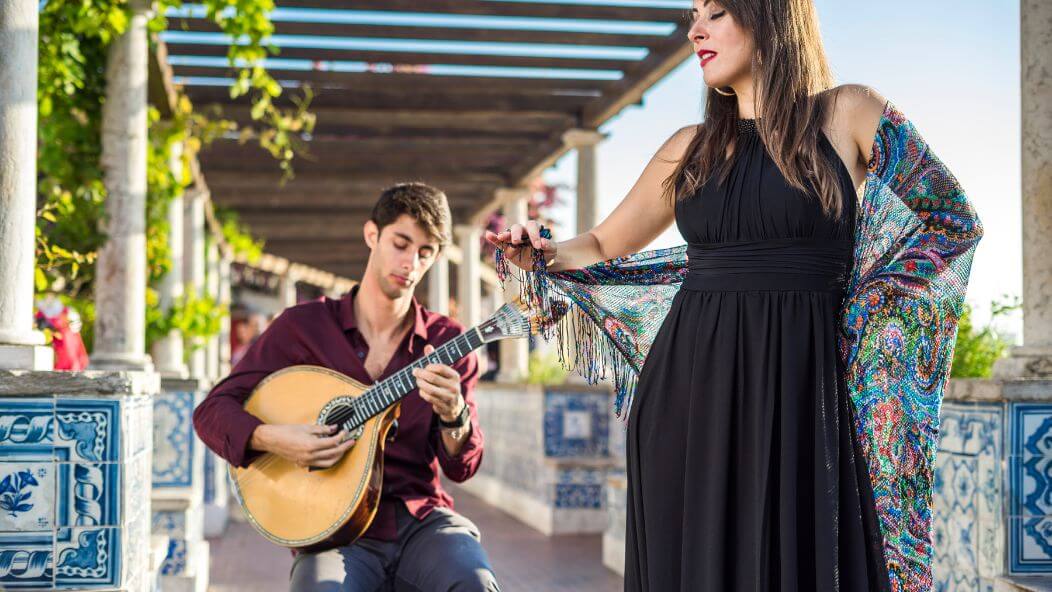
Fado is a beloved Portuguese tradition that incorporates music, lyrics, and movement. This form of music often reflects the struggles and joys of everyday life and has become a cherished tradition in Portugal.
Fado songs are usually performed by a solo singer (male or female) and traditionally accompanied by the Portuguese guitar – a pear-shaped cittern with twelve wire strings that exist only in Portugal. The Portuguese guitar, with its unique sound and style, is an integral part of the Fado performance and contributes to the emotional depth of the music.
The main themes of passion, fate, and regret in Fado music have their roots in the ancient songs of African slavery and Portuguese sailors of the 14th and 15th centuries. Fado is performed almost every evening in the Lisbon neighborhoods of Alfama, Mouraria, and Bairro Alto.
It also exists in other cities and regions of Portugal, such as Coimbra, Porto, and Madeira. These performances often take place in small, intimate venues, which adds to the authenticity and emotional impact of the music.
The Fado Museum in Lisbon is a great place to learn more about the history and evolution of this important cultural tradition. The museum offers a range of exhibits, from historical artifacts and photographs to audio and video recordings of Fado performances. It’s a must-visit for anyone interested in learning about Portugal’s rich cultural heritage.
2. Christmas Markets
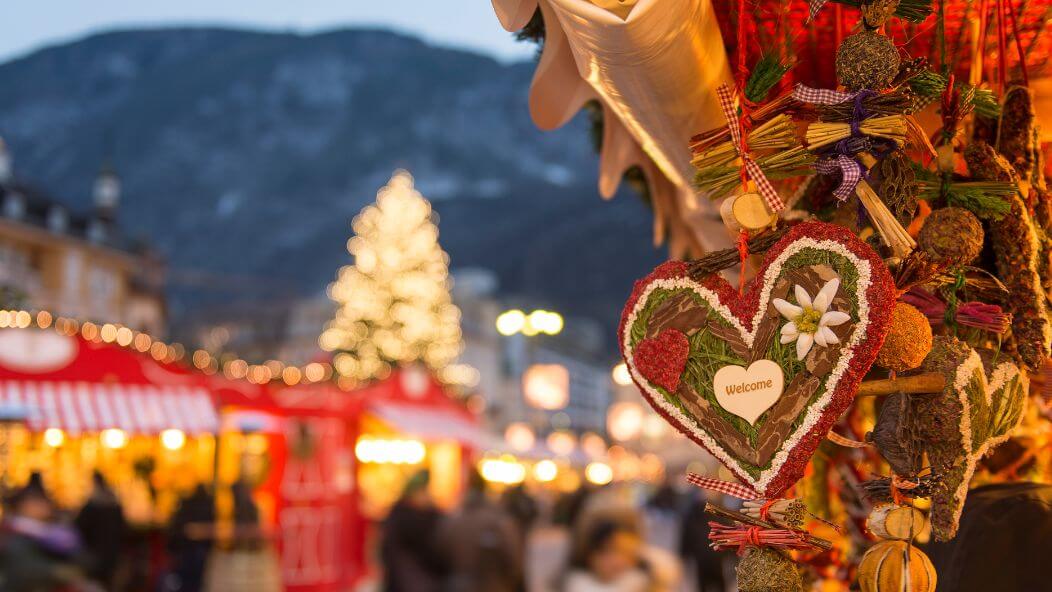
Portugal may not have as many Christmas markets as other European countries, but the ones that do exist are charming and full of festive spirit. In addition to the Campo Pequeno Christmas Market in Lisbon, there are other popular markets throughout the country.
One of the most famous is the Christmas market in Vila do Conde, located in the north of Portugal. This market is known for its beautiful handmade crafts, including pottery, textiles, and traditional Portuguese ornaments.
In Porto, the largest city in the north, the Christmas market is held in the historic center, where visitors can find local delicacies such as pastel de nata (custard tarts), roasted chestnuts, and warm port wine.
Related: Top Portuguese Culinary Delicacies
Another popular Christmas market is the Mercado de Natal de Cascais, held in the coastal town of Cascais, just outside Lisbon. This market features traditional Portuguese crafts as well as live music and entertainment.
Overall, Christmas markets in Portugal may be smaller in scale than those in other European countries, but they offer visitors a unique and authentic experience that focuses on local traditions and crafts.
Related: Top 5 Christmas River Cruise Experiences
3. The Festival of Our Lady of Fatima
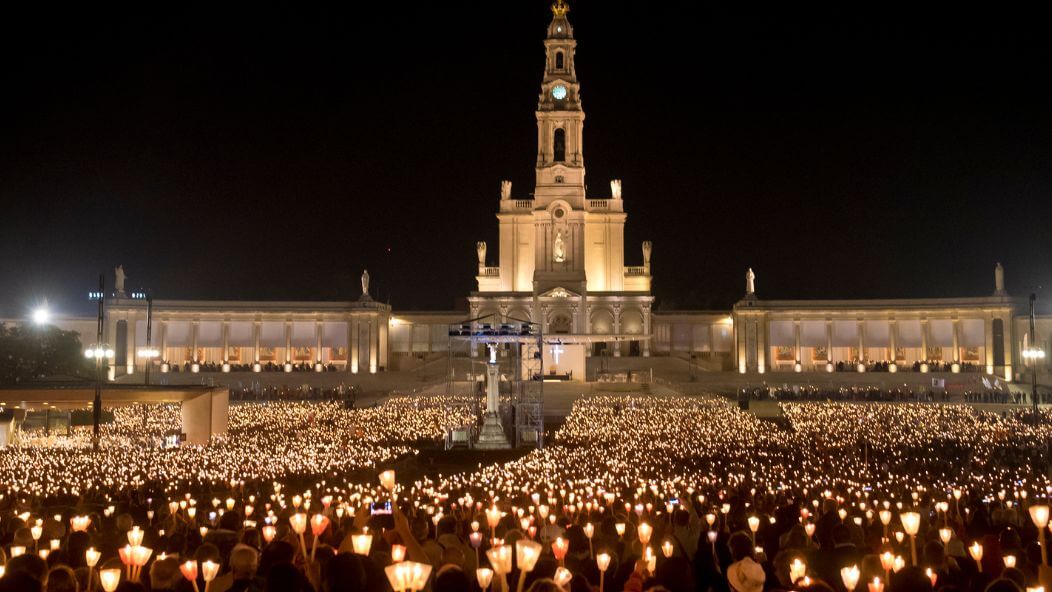
The Festival of Our Lady of Fatima is one of the most famous religious festivals in Portugal and attracts thousands of visitors each year. It is celebrated on the 13th of May in the town of Fatima, located in central Portugal.
The festival is famous because it commemorates a series of apparitions of the Virgin Mary that occurred in 1917 to three young shepherds in the town of Fatima. The story goes that the Virgin Mary appeared to the children several times, giving them messages of peace, repentance, and prayer. The events at Fatima are considered one of the most important Marian apparitions in the Catholic faith.
During the festival, visitors can expect to see a variety of religious ceremonies, processions, and events. The highlight of the festival is the candlelight procession, where pilgrims carry candles and walk from the Sanctuary of Our Lady of Fatima to the Chapel of the Apparitions. This procession is a powerful and moving experience, with thousands of people walking in silence, praying and singing hymns.
There are also Masses, confessionals, and other religious services taking place throughout the day. Visitors can expect a lively and festive atmosphere, with food and souvenir stalls set up throughout the town.
Overall, the Festival of Our Lady of Fatima is a unique and meaningful experience for visitors interested in the religious and cultural traditions of Portugal.
4. Carnaval
Carnaval (carnival) in Portugal has a long history dating back to the Middle Ages. Originally, it was a pagan festival that marked the beginning of spring and was celebrated with dancing, music, and feasting. However, when Christianity became the predominant religion in Portugal, the festival was adapted to coincide with Lent, the 40-day period of fasting and reflection before Easter.
Carnaval in Portugal is a time of celebration when people let loose and have fun before the solemnity of Lent. It’s characterized by elaborate parades with colorful floats, costumes, and music. The parades usually have satirical themes, with floats poking fun at politicians, celebrities, and current events. In addition to the parades, there are street festivals, concerts, and other festivities throughout the country.
One of the most popular Carnival celebrations in Portugal takes place in Loulé, a town in the Algarve region. The city’s carnival parade is known for its elaborate floats and costumes, which are designed and built by residents. Each float has a topical theme, and the satirical commentary is often biting and humorous.
Related: Why The Algarve Region Is Worth a Visit
The popularity of Carnaval in Portugal is due to its unique blend of history, culture, and entertainment. Visitors can experience the country’s rich traditions and folklore firsthand while enjoying the lively atmosphere of the parades and parties. The festival also offers the opportunity to immerse in Portuguese culture and interact with locals.
5. The Sintra Festival
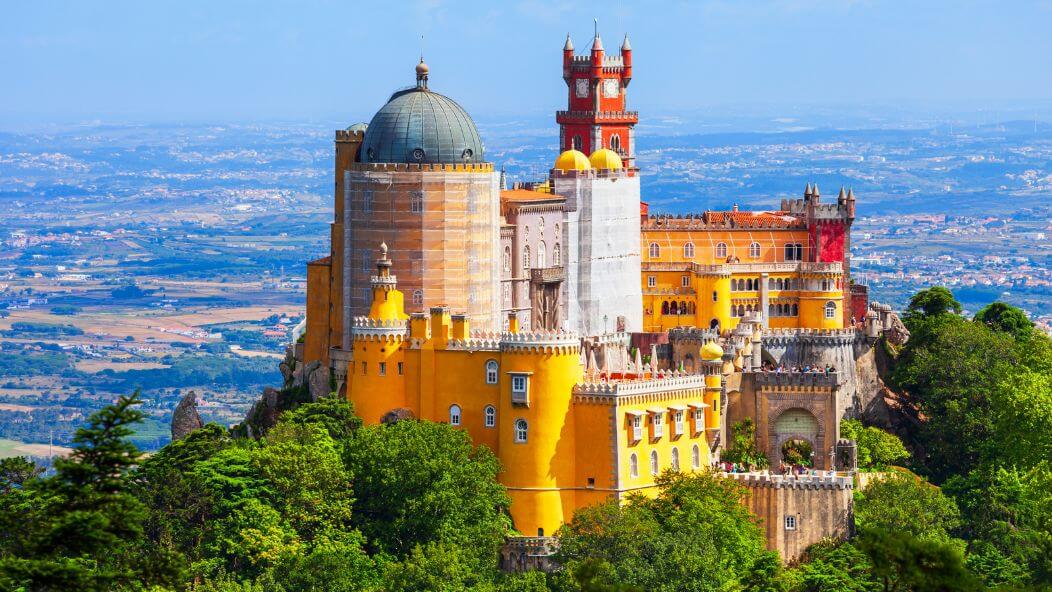
The Sintra Festival has been held annually since 1958 and has become one of the most popular cultural events in Portugal. Originally intended to promote classical music and culture in the region, the festival has since become a major international event attracting visitors from all over the world.
One of the highlights of the Sintra Festival is its stunning location. Performances take place in some of Portugal’s most beautiful and historic buildings, including the National Palace of Queluz, the Pena Palace and the Monserrate Palace. These buildings provide a stunning backdrop for the performances, and visitors can look forward to being transported into a magical world of music, art and history.
Related: Inside Scoop on Portugal’s Top Architectural and Historical Sites
The festival’s program is diverse and offers performances for every taste and interest. The festival includes not only classical music but also world music, jazz, and contemporary music. In addition, there are performances aimed specifically at multigenerational families looking for an epic cultural experience.
The Sintra Festival is a unique and unforgettable cultural experience that offers visitors the opportunity to immerse themselves in Portugal’s rich cultural heritage. The breathtaking venues alone are reason enough to attend.
6. The International Sand Sculpture Festival

The International Sand Sculpture Festival, also known as Sand City, is home to the largest sand sculpture site in the world. The festival takes place in a beautiful outdoor area between Porches and Lagoa in the Algarve region of Portugal. Here you can admire the intricacy and detail of the incredible works of art created entirely out of sand by skilled artists from around the world.
There are around 60 sculptures on display at the festival, some of which can be more than 10 meters high- so there’s plenty to discover and admire. Each year the festival has a different theme.
You can expect unique and creative interpretations of the chosen theme. Some of the past themes have been Music Idols, Animal Kingdom, Hollywood Stars, Wonders of the World, Mythology and Lost Worlds.
In addition to the sculptures themselves, the festival also features various events such as musical performances and workshops. Overall, the International Sand Sculpture Festival is a unique and impressive experience that is definitely worth a visit if you’re in the area.
7. The Iberian Mask Festival
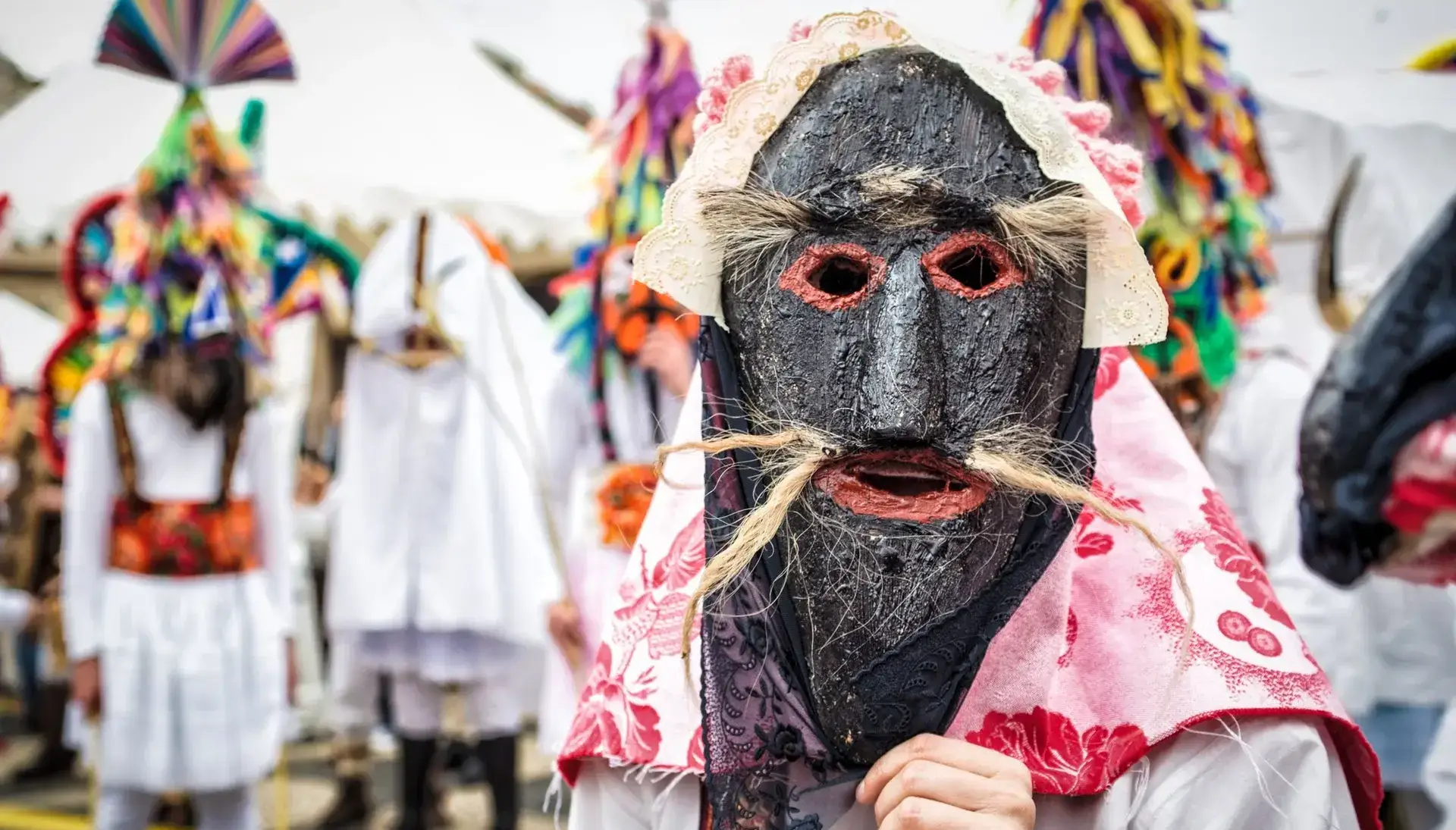
The Iberian Mask Festival, also known as Festival da Máscara Ibérica, is a lively celebration of the cultural and ethnic ties between the Spanish and Portuguese regions. During the first week of May, people from both countries parade through the streets of Lisbon in funky costumes and masks.
The festival is a unique opportunity to learn about the rich and diverse cultures of the Iberian Peninsula. The masks worn by festival-goers are a key element of the festival. Each represents a different cultural or historical figure or event.
During the four-day festival, visitors get to experience the unique blend of Spanish and Portuguese culture and see the creativity and artistry of the costumes and masks worn by festivalgoers. The festival also offers a rare opportunity to immerse yourself in the traditions and history of the region.
You’ll also get to enjoy a range of activities, including dance performances, music concerts, street theater, and food and beverage stands. This is a lively and colorful affair with a carnival-like atmosphere that is infectious and fun for all ages.
8. The Lisboa Dance Festival
The Lisboa Dance Festival is a relatively new but highly popular festival in Lisbon, Portugal, that celebrates the country’s culture through electronic music. Launched in 2016, the festival has quickly become one of the most exciting events for a diverse crowd, from electronic music fans to culture lovers.
One of the main reasons to attend the Lisboa Dance Festival is its eclectic lineup. The festival showcases a wide range of electronic music genres, including techno, house, disco, and more. The program includes both local and international artists providing a unique opportunity to experience the current electronic music scene from Portugal and around the world.
In addition to music, the festival offers a wide range of activities such as workshops, lectures, and art installations that make it a cultural event that goes beyond music. The festival takes place in a beautiful and historic location that offers visitors an unforgettable experience. The festival has a friendly and inclusive atmosphere that makes it a welcoming event for all. If you want to meet new people and experience a different side of Lisbon, this is the place to be.
***
- Part One: Most Popular Travel Destinations in Portugal
- Part Two: Portugal’s Burgeoning Culinary Scene
- Part Three: Celebrating Portugal’s Wonderful Art and Architecture
***
Immerse Yourself in The Rich & Vibrant Culture of Portugal
One of the main reasons to travel is to experience different cultures. By participating in local festivals and traditions in Portugal, you gain a deeper understanding of the local culture and its people.
This is because most festivals and traditions are often community-driven events where locals come together to celebrate and honor their cultural heritage. However, for all its benefits, experiencing the rich Portuguese culture isn’t without its challenges.
Popular cultural festivals in Portugal can draw large crowds, which can lead to long lines, difficulty finding parking, and congestion on public transportation. During peak festival times, accommodations in the area may be limited.
Therefore, it’s always important to research the festival you plan to attend and plan ahead to make your visit as smooth and enjoyable as possible. However, planning a great trip is a whole other conundrum. For one, information about some festivals isn’t readily available in English or other languages, making it difficult for visitors to plan their visit. Even if you have the information, it’s still a shot in the dark. That’s why working with an experienced personal travel advisor has been a game-changer for many travelers.
I take care of all the planning and logistics so you can enjoy a trip to Portugal that is 100% tailored to your interests. All you have to do is put on that sunscreen and embark on an unforgettable experience in the streets of Lisbon or any other Portuguese city where your love of culture takes you.

